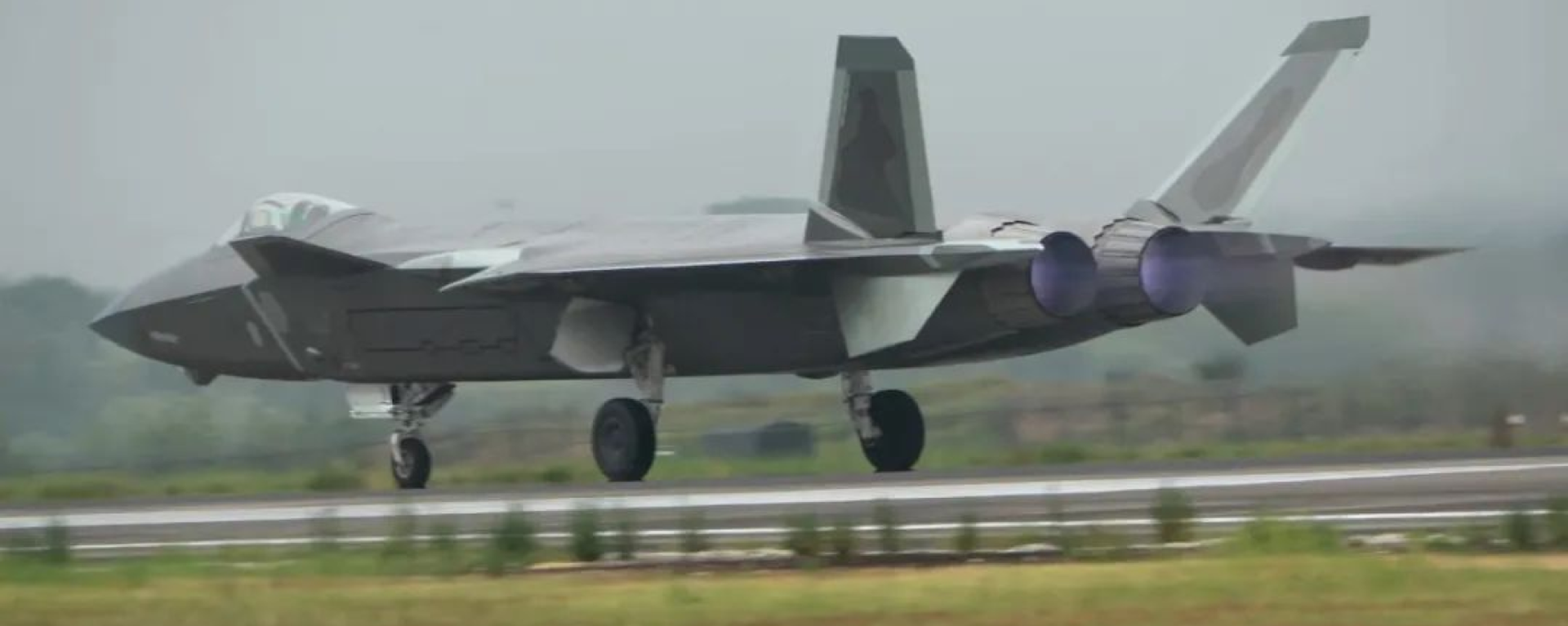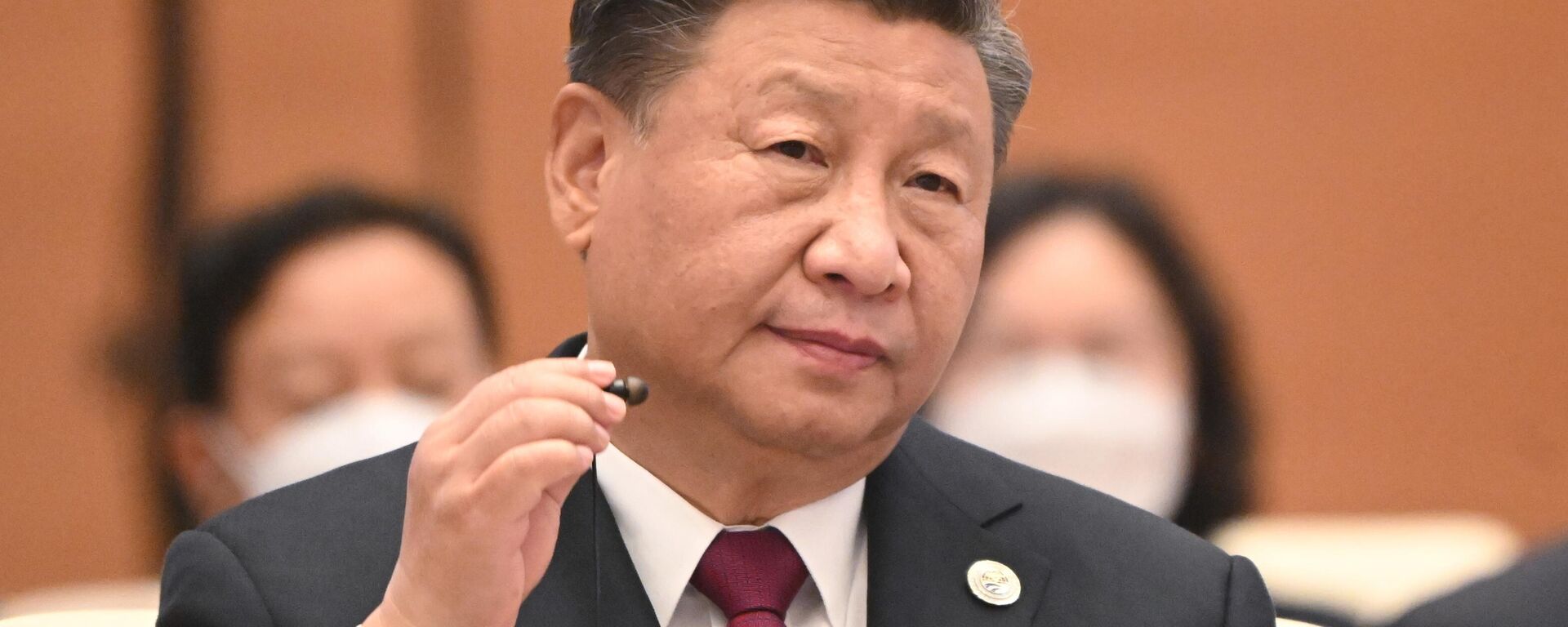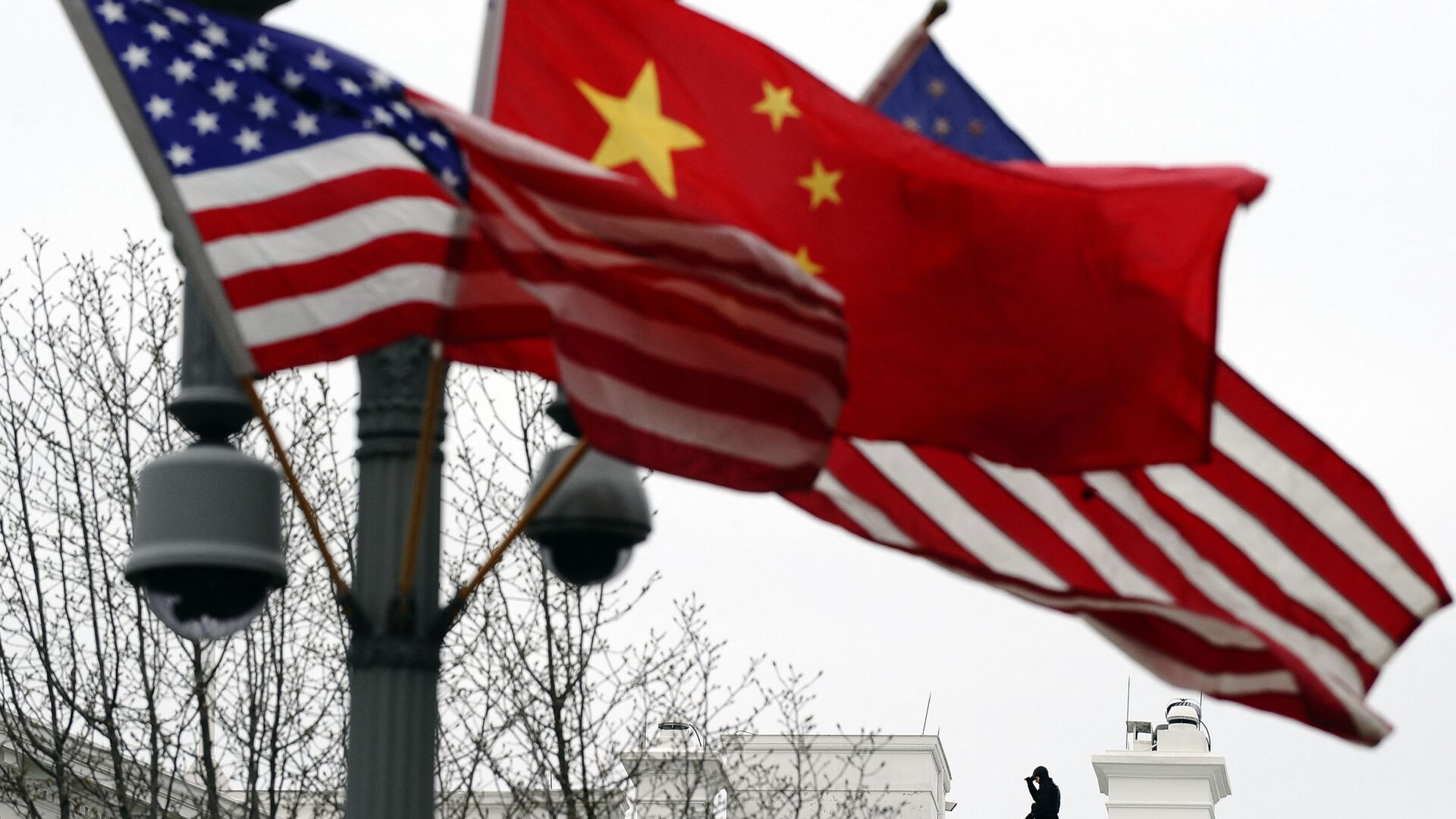https://sputnikglobe.com/20221109/joe-biden-extends-us-investment-ban-on-firms-washington-claims-aid-chinas-military-1103936115.html
Joe Biden Extends US Investment Ban on Firms Washington Claims Aid China's Military
Joe Biden Extends US Investment Ban on Firms Washington Claims Aid China's Military
Sputnik International
US National Security Council spokesman John Kirby confirmed earlier that work was underway for a possible meeting between President Joe Biden and China’s... 09.11.2022, Sputnik International
2022-11-09T12:45+0000
2022-11-09T12:45+0000
2022-11-09T12:45+0000
world
us
china
https://cdn1.img.sputnikglobe.com/img/07e5/07/0f/1083388892_0:203:2919:1845_1920x0_80_0_0_cbbd453e25eb1456353dff85d95c7af0.jpg
The President of the United States has extended for another year an executive order banning American investments in Chinese companies that the White House claims support Beijing’s military.He added: "The PRC is increasingly exploiting United States capital to resource and to enable the development and modernization of its military, intelligence, and other security apparatuses, which continues to allow the PRC to directly threaten the United States homeland and United States forces overseas." The original decree was signed in 2020 by then-President Donald Trump. It barred American firms and individuals from owning shares, whether outright or through investment funds, in companies the American administration claimed were tailored to enable the development and modernization of China’s “military, intelligence, and other security apparatuses.”That investment “continues to allow the PRC to directly threaten the United States homeland and United States forces overseas, including by developing and deploying weapons of mass destruction, advanced conventional weapons, and malicious cyber-enabled actions against the United States and its people,” the document underscored.Overall, bilateral tensions escalated during the Trump administration, as the US and China engaged in a trade war, slapping duties on each other's goods. Furthermore, Washington accused China of an espionage campaign, and targeted an array of Chinese tech giants, such as Huawei, despite Beijing vehemently rejecting spying-related allegations.In 2021, the Democratic POTUS Biden extended the ban beyond November 12, 2021, while also adding nearly a dozen Chinese firms and their subsidiaries to the list, thus expanding the blacklisted number of companies to 59.Biden's extension of the decree now suggests that the United States has once again used political pressure tactics ahead of possible high-level bilateral negotiations.A spate of conciliatory rhetoric was exchanged between China and the US of late, amid speculation that the Xi-Biden meeting could happen during the Group of 20 summit in Bali starting on November 15. US National Security Council spokesman John Kirby confirmed earlier that both sides were working to arrange a meeting as, “There’s an awful lot of issues for us to talk to China about. Some issues are fairly contentious and some should be collaborative.”Beijing has not yet confirmed either the General Secretary of the Chinese Communist Party’s attendance at the summit or a meeting with Biden.Recently, in a congratulatory message to the annual Gala Dinner of the National Committee on US-China Relations, China’s leader Xi Jinping has said that his country is ready to engage with the United States in an effort to help foster global stability. US President Joe Biden, who also sent a congratulatory message to the event, was earlier cited as saying during a meeting with his senior military advisers on October 26 that the US “does not seek conflict” with China.However, rhetoric aside, the US national security strategy continues to declare that “the [People’s Republic of China] represents America’s most consequential political challenge”. During his speech at Georgetown University in October, Biden's national security advisor, Jake Sullivan, said the 2020s would be a "decisive decade for America and the world", adding: "We will prioritize maintaining an enduring competitive edge over the [People's Republic of China].”Besides the issue of Taiwan - a self-governed island that Beijing considers an inalienable part of its territory – perpetually souring relations between the US and China, Washington has been notching up its stand-off with China in the sphere of technology. Thus, to ostensibly clamp down on China’s growing technical clout, Washington restricted last month the Asian giant’s access to semiconductors and chip-making equipment, citing concerns they could be used for military purposes. Companies will no longer be allowed to supply advanced computing chips, chip-making equipment and other products to China unless they receive a special license, according to the package of restrictions released by the US Commerce Department.The more recent extended ban on investment in Chinese companies, which primarily hits the US stock market, leaving Chinese businesses with ample opportunities to raise capital in Shanghai and Hong Kong, is further evidence of what the Chinese Foreign Ministry spokesman Wang Wenbin denounced as restrictions “doomed to failure.” Washington was “attempting to use its technological privileges to curb and suppress the advancement of emerging economies and developing countries,” Wang underscored.
https://sputnikglobe.com/20210603/biden-admin-says-bans-59-chinese-military-surveillance-firms-from-getting-us-investments-1083068767.html
https://sputnikglobe.com/20221027/chinese-defense-ministry-says-any-attempt-to-prevent-taiwan-china-reunification-will-fail-1102763935.html
https://sputnikglobe.com/20221027/china-ready-to-coexist-peacefully-with-us-despite-being-labelled-greatest-political-challenge-1102750223.html
china
Sputnik International
feedback@sputniknews.com
+74956456601
MIA „Rosiya Segodnya“
2022
News
en_EN
Sputnik International
feedback@sputniknews.com
+74956456601
MIA „Rosiya Segodnya“
Sputnik International
feedback@sputniknews.com
+74956456601
MIA „Rosiya Segodnya“
us extends ban on investment in chinese companies, beijing’s military, us stock market, political pressure tactics, possible high-level bilateral negotiations, china challenge to us
us extends ban on investment in chinese companies, beijing’s military, us stock market, political pressure tactics, possible high-level bilateral negotiations, china challenge to us
Joe Biden Extends US Investment Ban on Firms Washington Claims Aid China's Military
US National Security Council spokesman John Kirby confirmed earlier that work was underway for a possible meeting between President Joe Biden and China’s leader Xi Jinping. Such a meeting would be their first since the US Democrat took office, and come against the backdrop of rancor over everything from Taiwan to export controls on microchips.
The President of the United States has extended for another year an executive order
banning American investments in Chinese companies that the White House claims support Beijing’s military.
“The threat from securities investments that finance certain companies of the PRC [People's Republic of China] and certain uses and development of Chinese surveillance technology continue to pose an unusual and extraordinary threat to the national security, foreign policy, and economy of the United States,” Joe Biden claimed.
He added: "The PRC is increasingly exploiting United States capital to resource and to enable the development and modernization of its military, intelligence, and other security apparatuses, which continues to allow the PRC to directly threaten the United States homeland and United States forces overseas."
The original decree was signed in 2020 by then-President Donald Trump. It barred American firms and individuals from owning shares, whether outright or through investment funds, in companies the American administration claimed were tailored to enable the development and modernization of China’s “military, intelligence, and other security apparatuses.”
That investment “continues to allow the PRC to directly threaten the United States homeland and United States forces overseas, including by developing and deploying weapons of mass destruction, advanced conventional weapons, and malicious cyber-enabled actions against the United States and its people,” the document underscored.
Overall, bilateral tensions escalated during the Trump administration, as the US and China engaged in a
trade war, slapping duties on each other's goods. Furthermore, Washington accused China of an espionage campaign, and targeted an array of Chinese tech giants, such as
Huawei, despite Beijing vehemently rejecting spying-related allegations.
In 2021, the
Democratic POTUS Biden extended the ban beyond November 12, 2021, while also adding nearly a dozen Chinese firms and their subsidiaries to the list, thus
expanding the blacklisted number of companies to 59.
Biden's extension of the decree now suggests that the United States has once again used political pressure tactics ahead of possible high-level bilateral negotiations.
A spate of conciliatory rhetoric was exchanged between China and the US of late, amid speculation that the Xi-Biden meeting could happen during the Group of 20 summit in Bali starting on November 15. US National Security Council spokesman John Kirby confirmed earlier that both sides were working to arrange a meeting as, “There’s an awful lot of issues for us to talk to China about. Some issues are fairly contentious and some should be collaborative.”
Beijing has not yet confirmed either the General Secretary of the Chinese Communist Party’s attendance at the summit or a meeting with Biden.
Recently,
in a congratulatory message to the annual Gala Dinner of the National Committee on US-China Relations, China’s leader Xi Jinping has said that his country is ready to engage with the United States in an effort to help foster global stability. US President Joe Biden, who also sent a congratulatory message to the event, was earlier cited as saying during a meeting with his senior military advisers on October 26 that the US “does not seek conflict” with China.
However, rhetoric aside, the US national security strategy continues to declare that “the [People’s Republic of China] represents America’s most consequential political challenge”. During his speech at Georgetown University in October, Biden's national security advisor, Jake Sullivan, said the 2020s would be a "decisive decade for America and the world", adding: "We will prioritize maintaining an enduring competitive edge over the [People's Republic of China].”
Besides the
issue of Taiwan - a self-governed island that Beijing considers an inalienable part of its territory – perpetually souring relations between the US and China, Washington has been notching up its stand-off with China in the sphere of technology. Thus, to ostensibly clamp down on China’s growing technical clout, Washington restricted last month the Asian giant’s access to semiconductors and chip-making equipment, citing concerns they could be used for military purposes. Companies will no longer be allowed to supply advanced computing chips, chip-making equipment and other products to China unless they receive a special license, according to the package of restrictions released by the US Commerce Department.

27 October 2022, 12:16 GMT
The more recent extended ban on investment in Chinese companies, which primarily hits the US stock market, leaving Chinese businesses with ample opportunities to raise capital in Shanghai and Hong Kong, is further evidence of what the Chinese Foreign Ministry spokesman Wang Wenbin denounced as restrictions “doomed to failure.”
Washington was “attempting to use its technological privileges to curb and suppress the advancement of emerging economies and developing countries,” Wang underscored.

27 October 2022, 08:37 GMT







